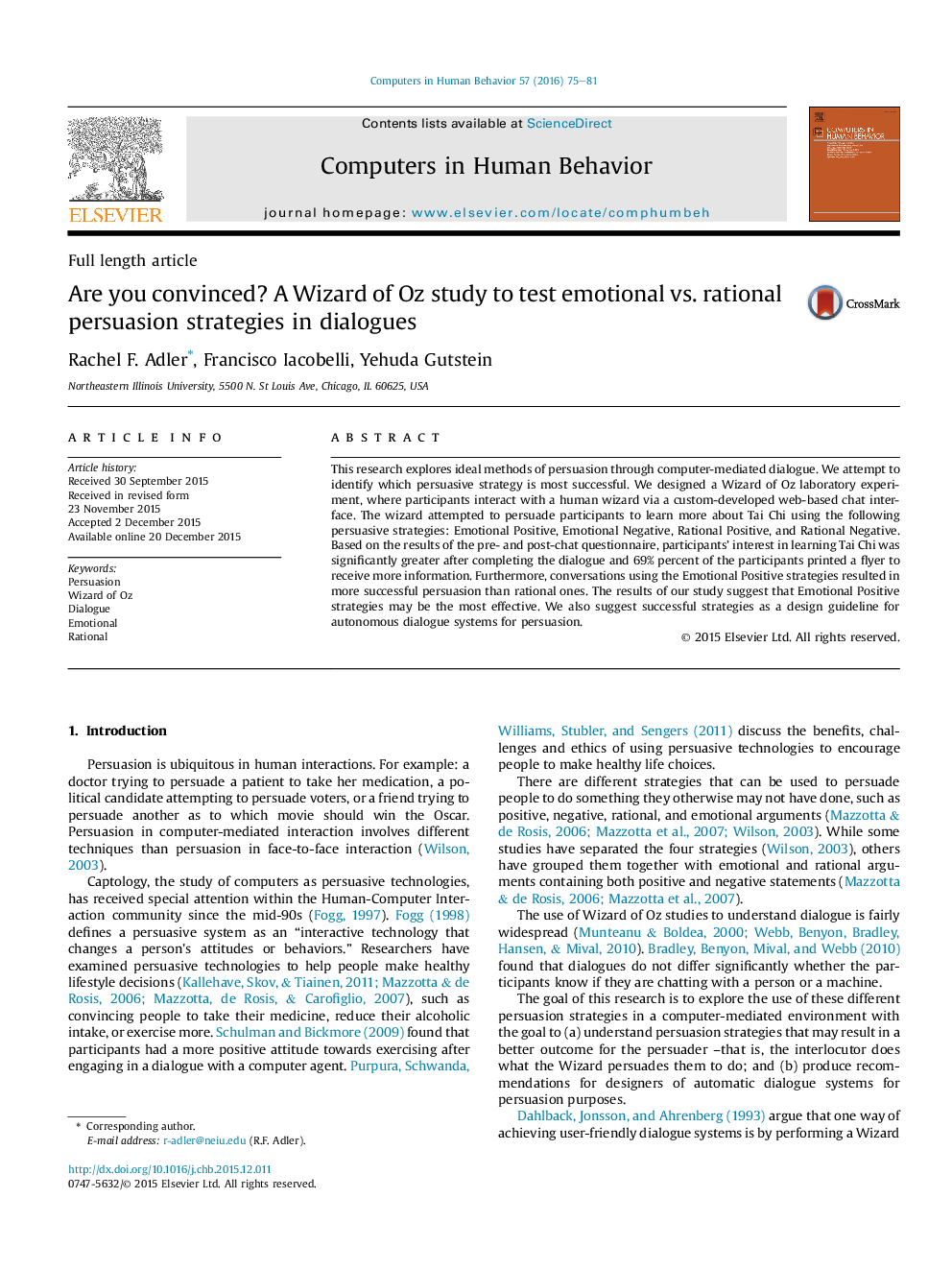| کد مقاله | کد نشریه | سال انتشار | مقاله انگلیسی | نسخه تمام متن |
|---|---|---|---|---|
| 350215 | 618433 | 2016 | 7 صفحه PDF | دانلود رایگان |
• We explore strategies for persuasion via acomputer-mediated dialogue about Tai Chi.
• We use a Wizard of Oz approach instead of a dialogue system.
• These strategies combined positive, negative, rational and emotional framings.
• Participants' interest in Tai Chi increased after completing the dialogue.
• Conversations with more Emotional Positive statements were the most successful.
This research explores ideal methods of persuasion through computer-mediated dialogue. We attempt to identify which persuasive strategy is most successful. We designed a Wizard of Oz laboratory experiment, where participants interact with a human wizard via a custom-developed web-based chat interface. The wizard attempted to persuade participants to learn more about Tai Chi using the following persuasive strategies: Emotional Positive, Emotional Negative, Rational Positive, and Rational Negative. Based on the results of the pre- and post-chat questionnaire, participants’ interest in learning Tai Chi was significantly greater after completing the dialogue and 69% percent of the participants printed a flyer to receive more information. Furthermore, conversations using the Emotional Positive strategies resulted in more successful persuasion than rational ones. The results of our study suggest that Emotional Positive strategies may be the most effective. We also suggest successful strategies as a design guideline for autonomous dialogue systems for persuasion.
Journal: Computers in Human Behavior - Volume 57, April 2016, Pages 75–81
